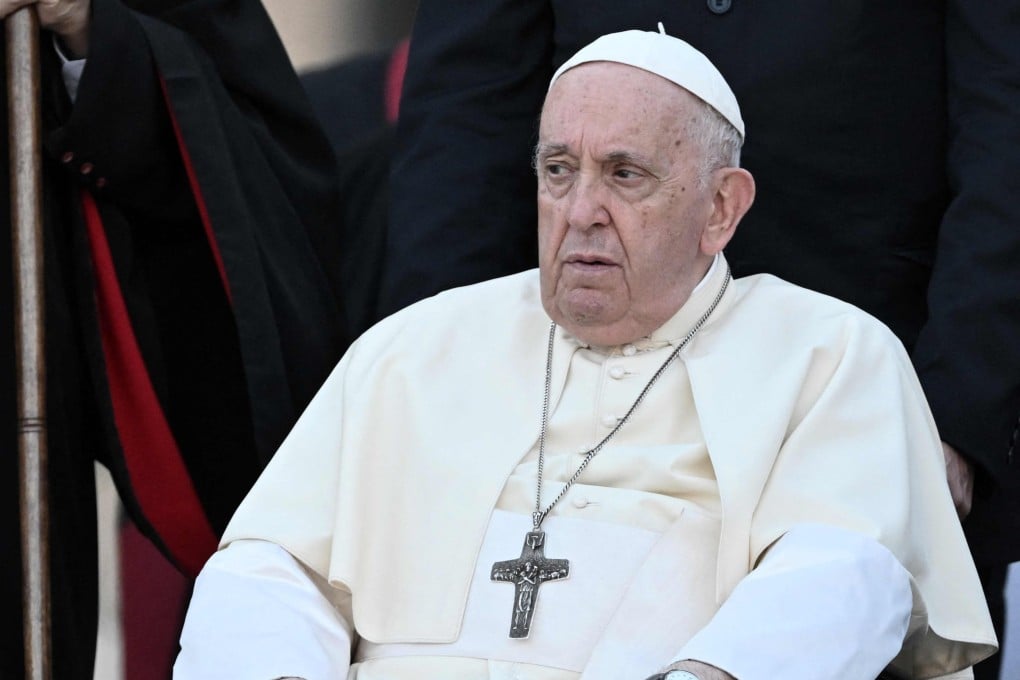Pope Francis hints at slight opening to blessings of same-sex couples
- Francis appeared to leave open the possibility of priests blessing same-sex couples if decided case-by-case and not confused with heterosexual weddings
- Francis said ‘pastoral charity should permeate all our decisions and attitudes’ adding that ‘we cannot be judges who only deny, reject and exclude’

Pope Francis has appeared to leave open the possibility of priests blessing same-sex couples, if they are limited, decided on a case-by-case basis and not confused with wedding ceremonies of heterosexuals.
The cardinals sent the pope a set of formal questions, known as “dubia” (“doubts” in Latin), about issues relating to a global gathering that starts at the Vatican on Wednesday.
One of the questions specifically regarded the practice, which has become relatively common in places like Germany, of priests blessing same-sex couples who are in a committed relationship.
The written exchange took place in July and the Vatican published the pope’s responses on Monday after the five cardinals unilaterally disclosed their initiative, saying they were not satisfied with Francis’ answers.